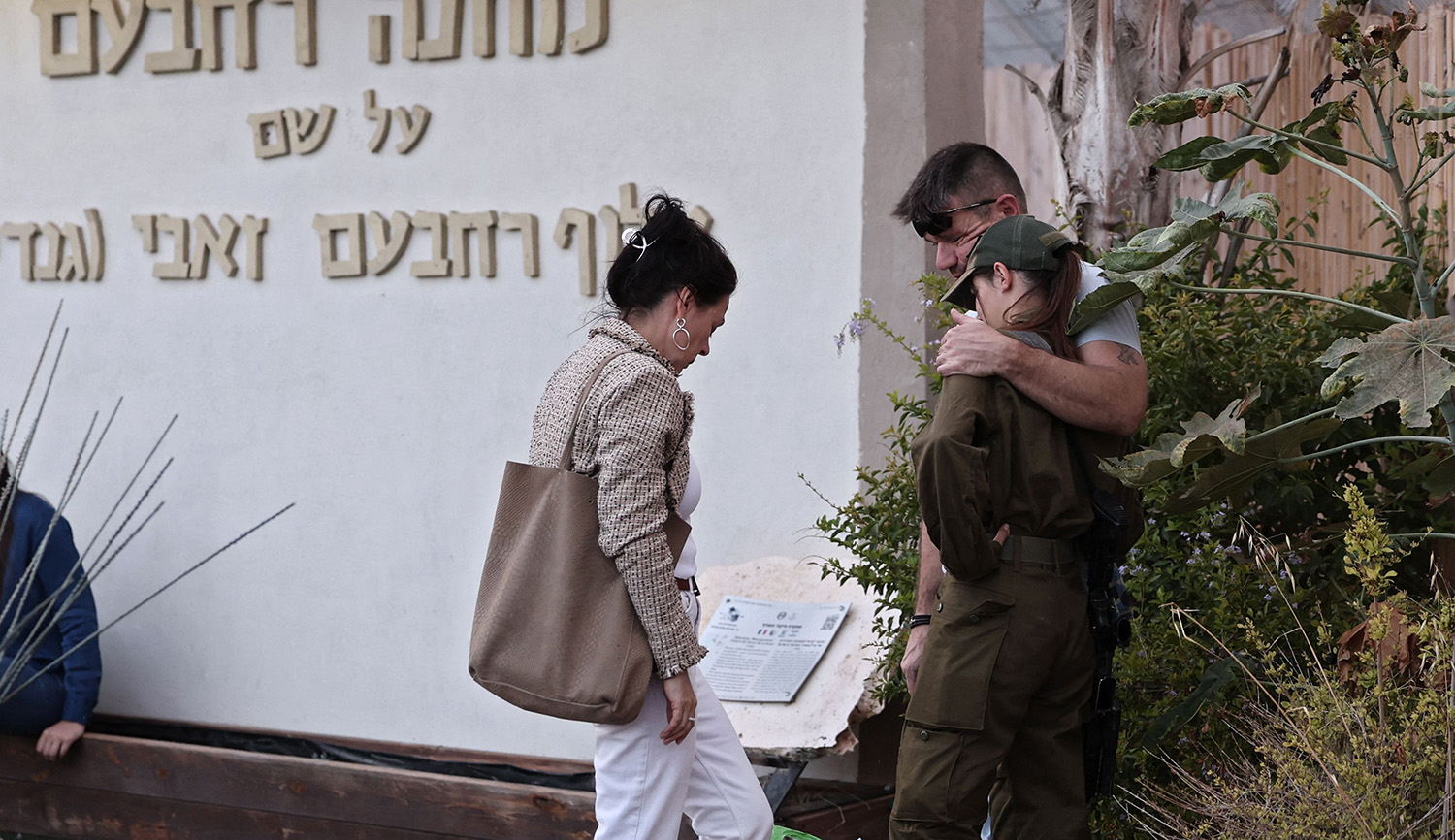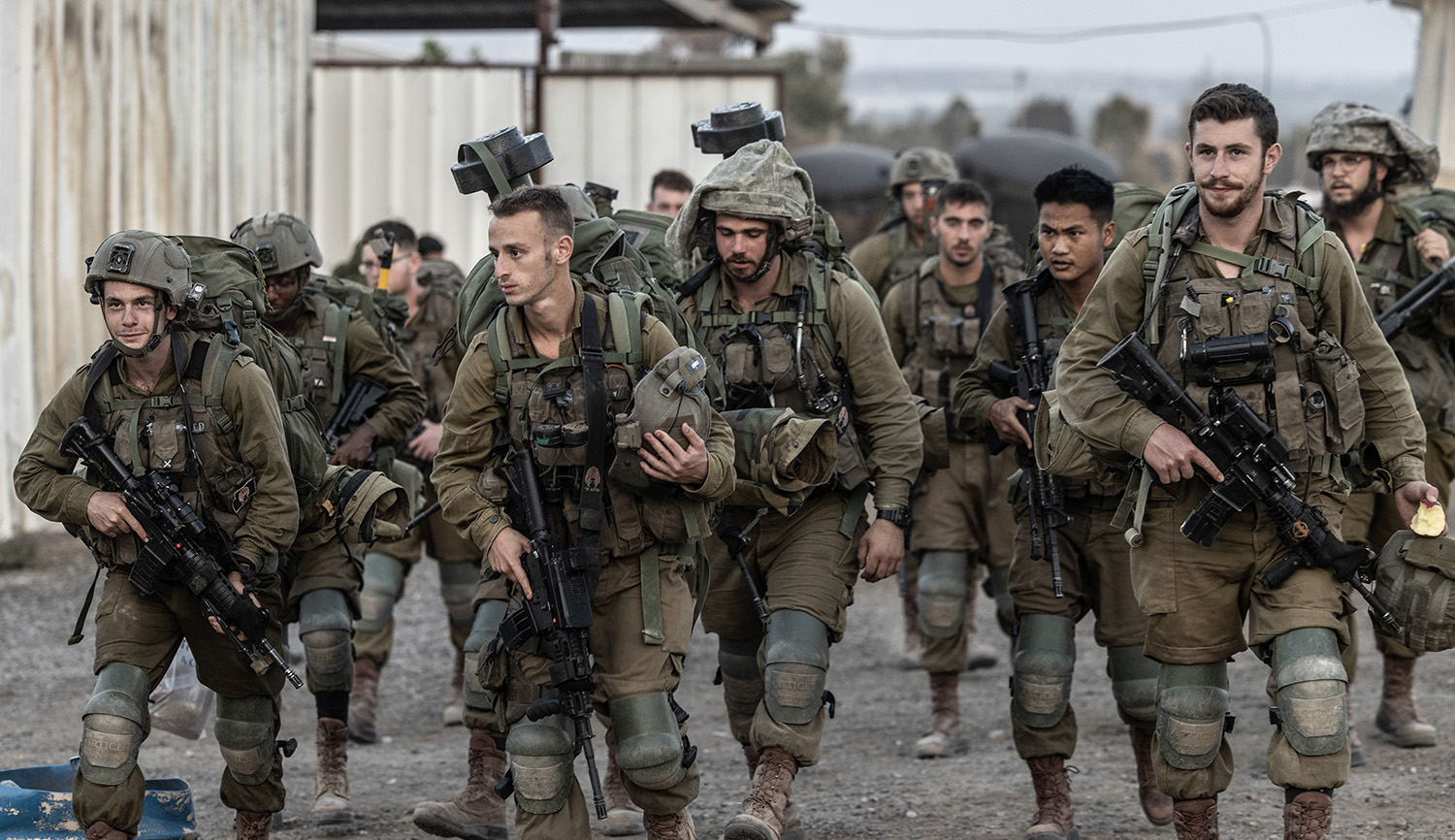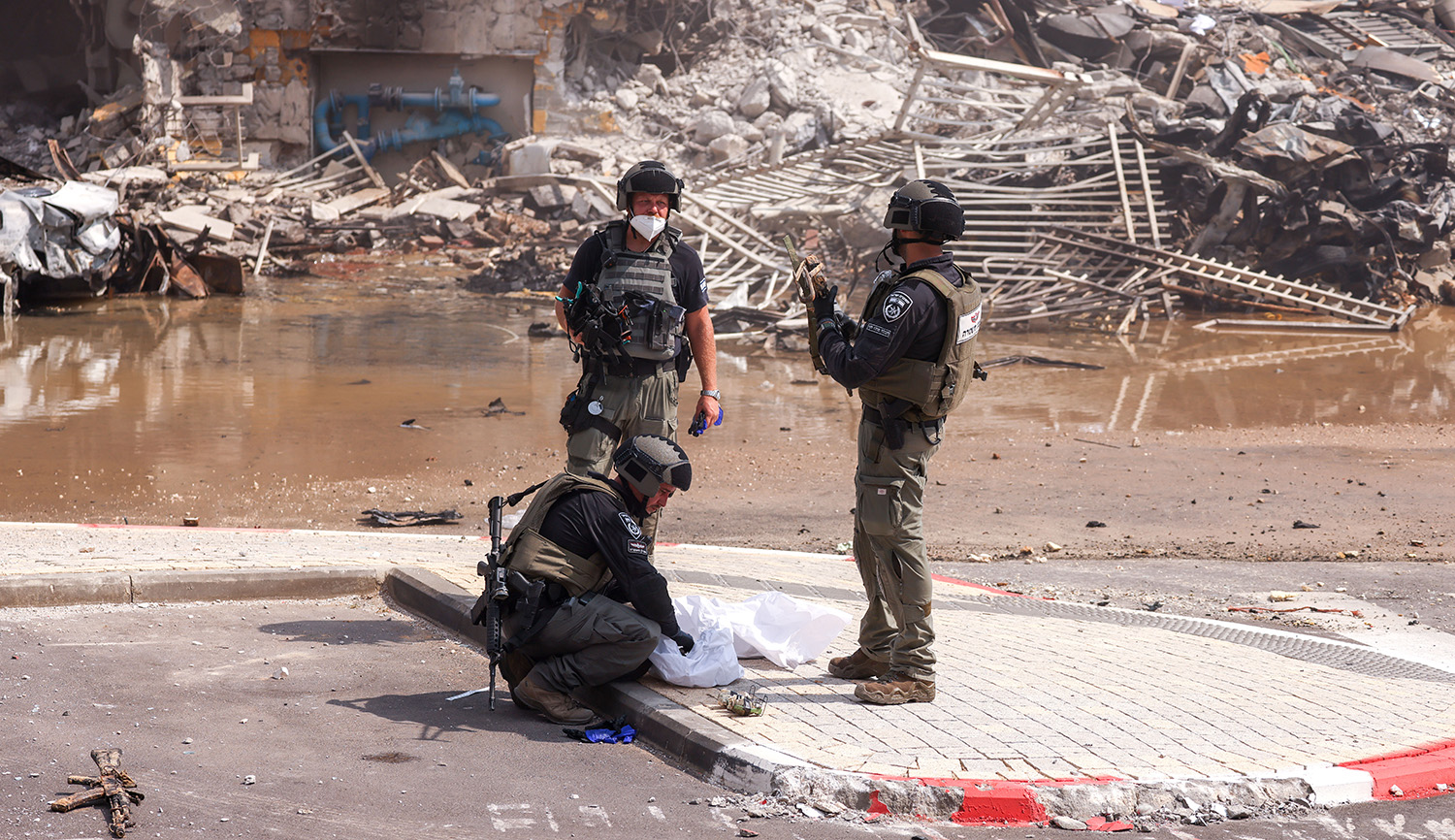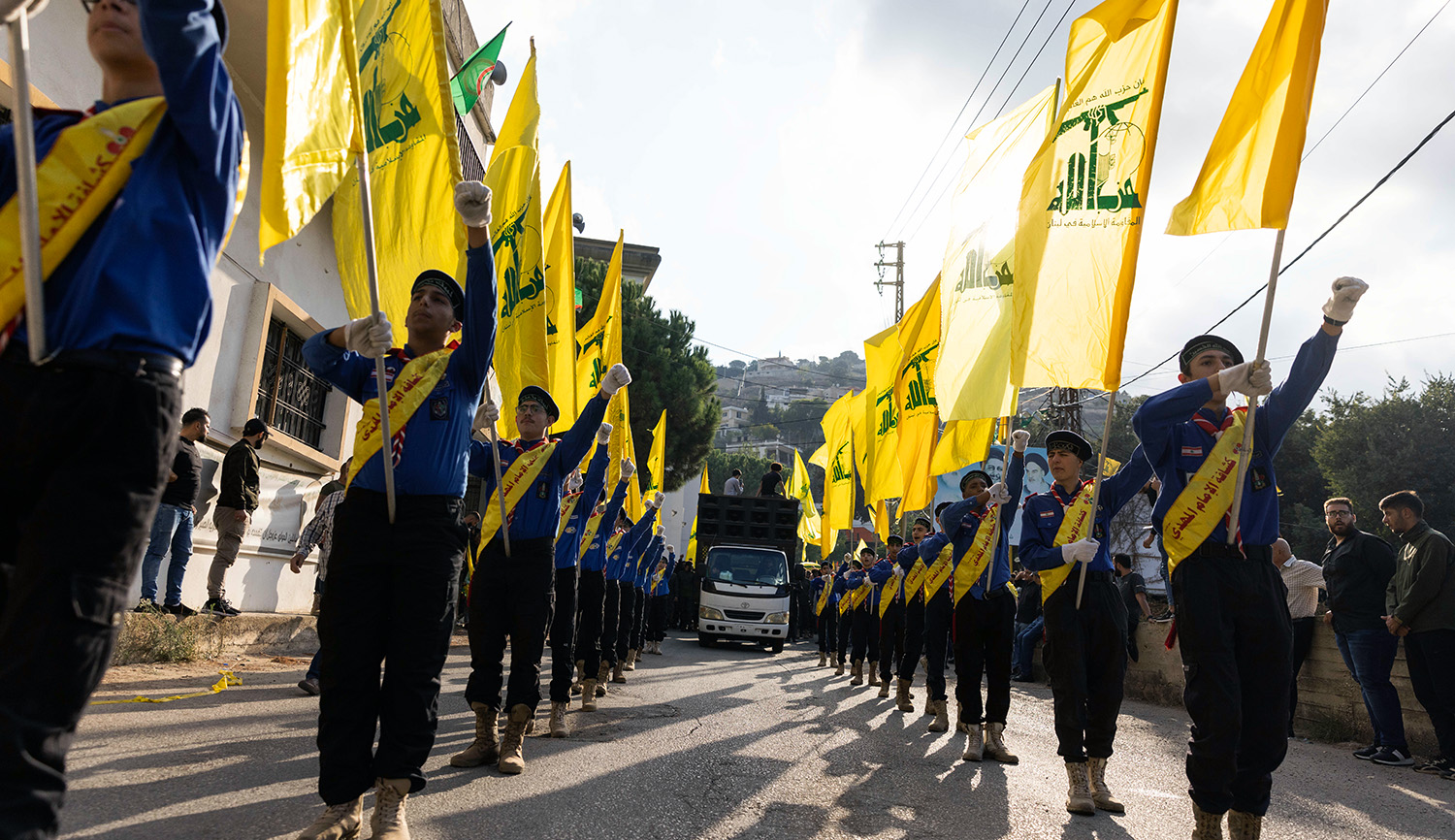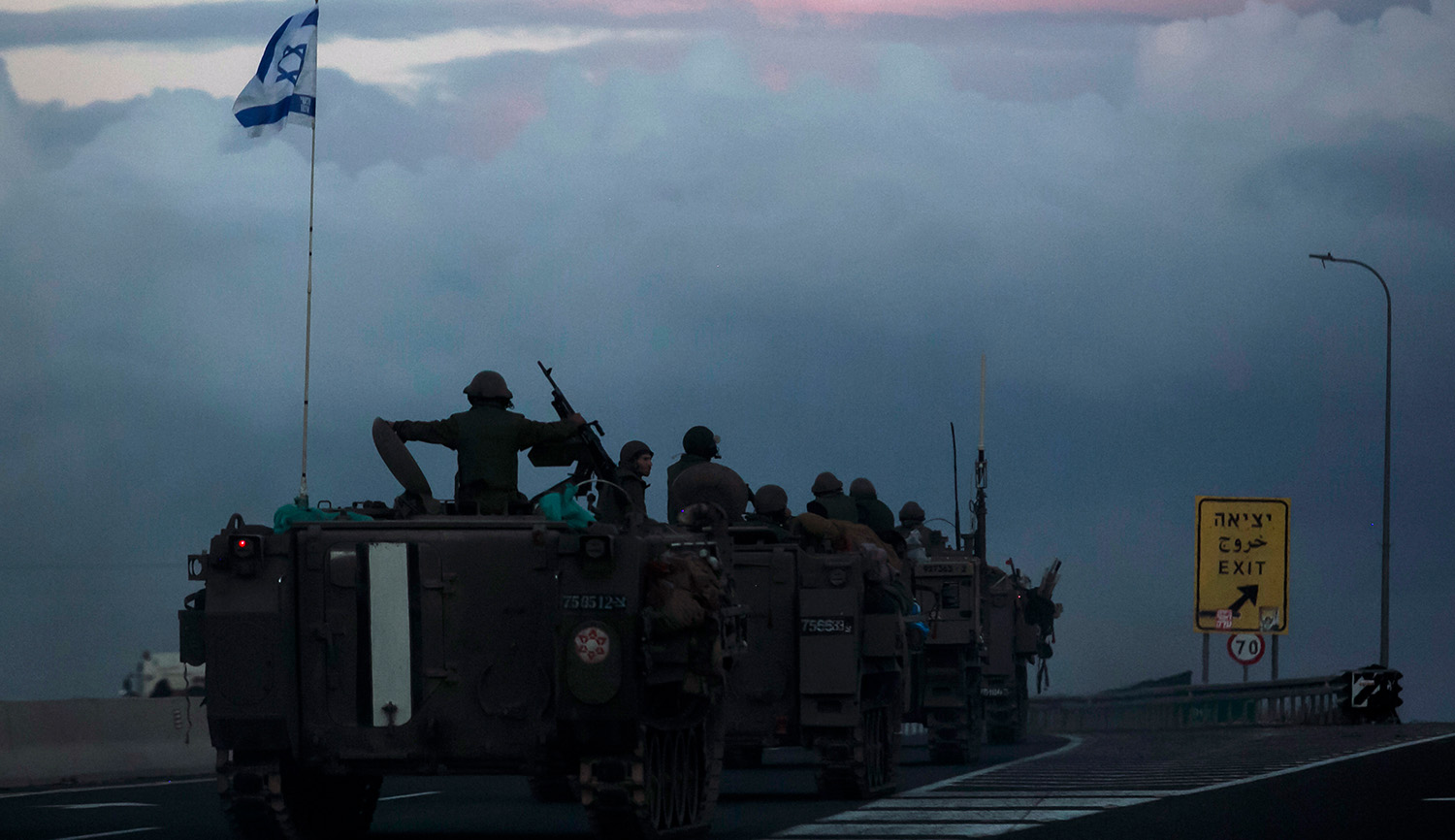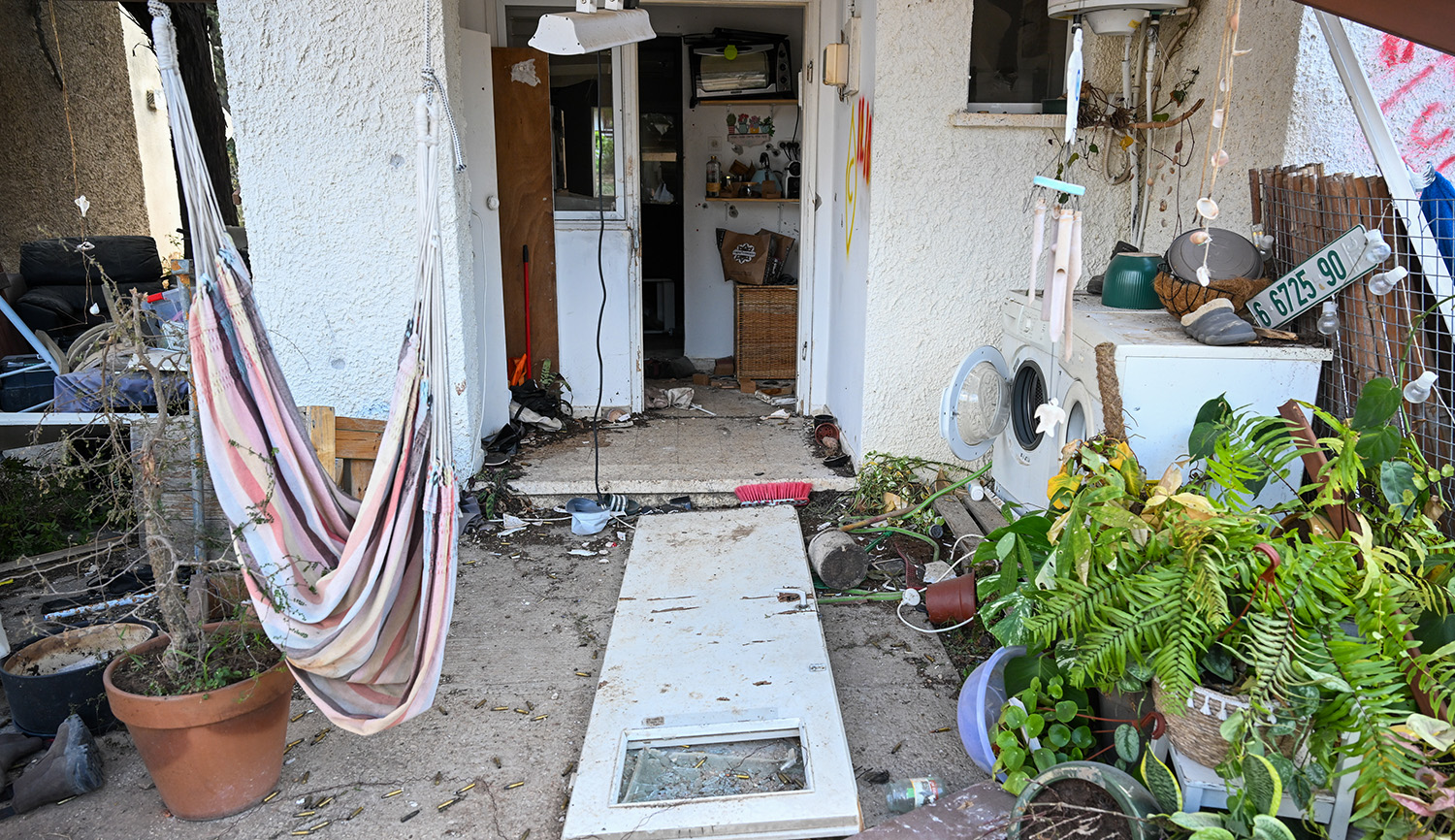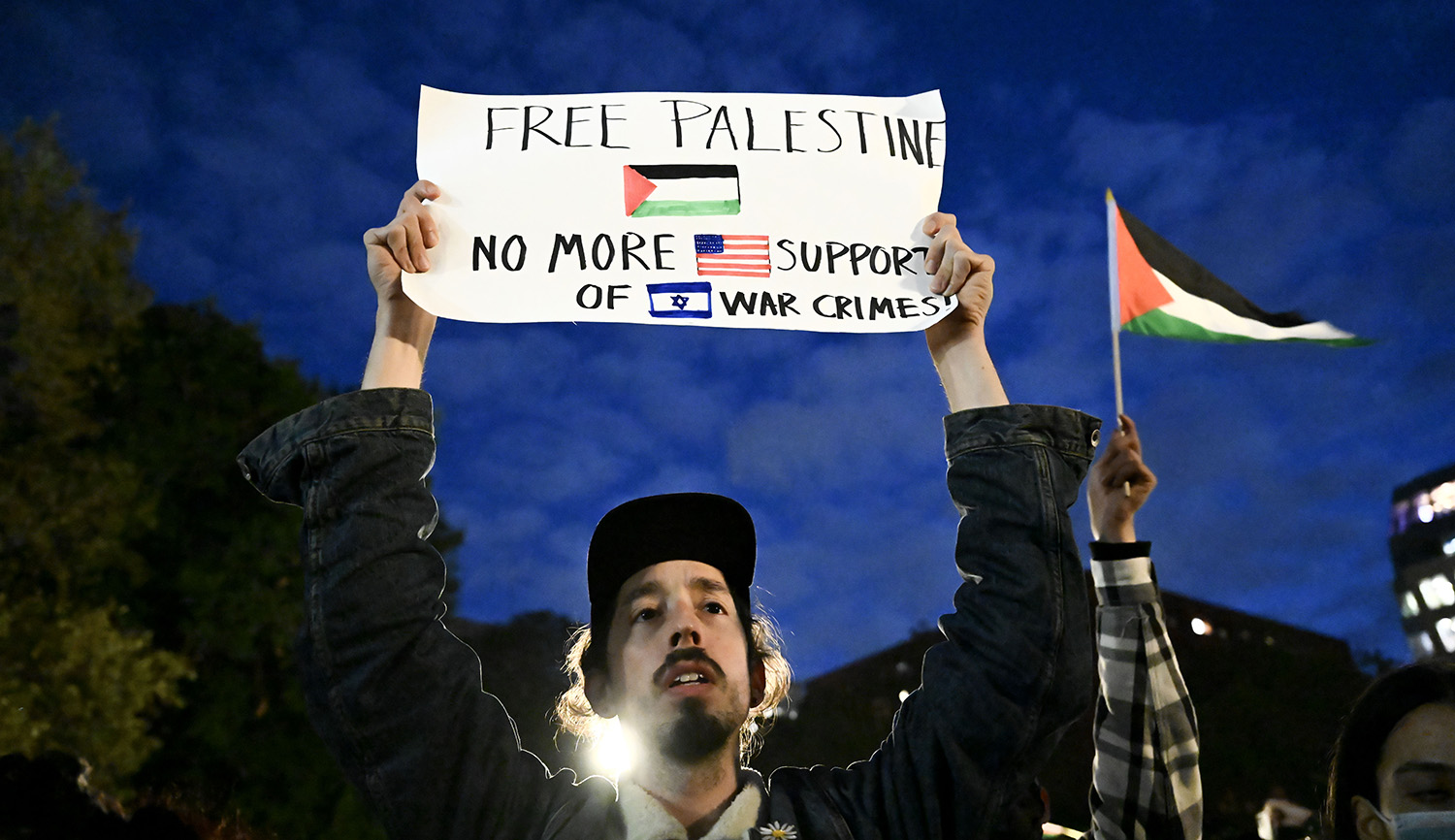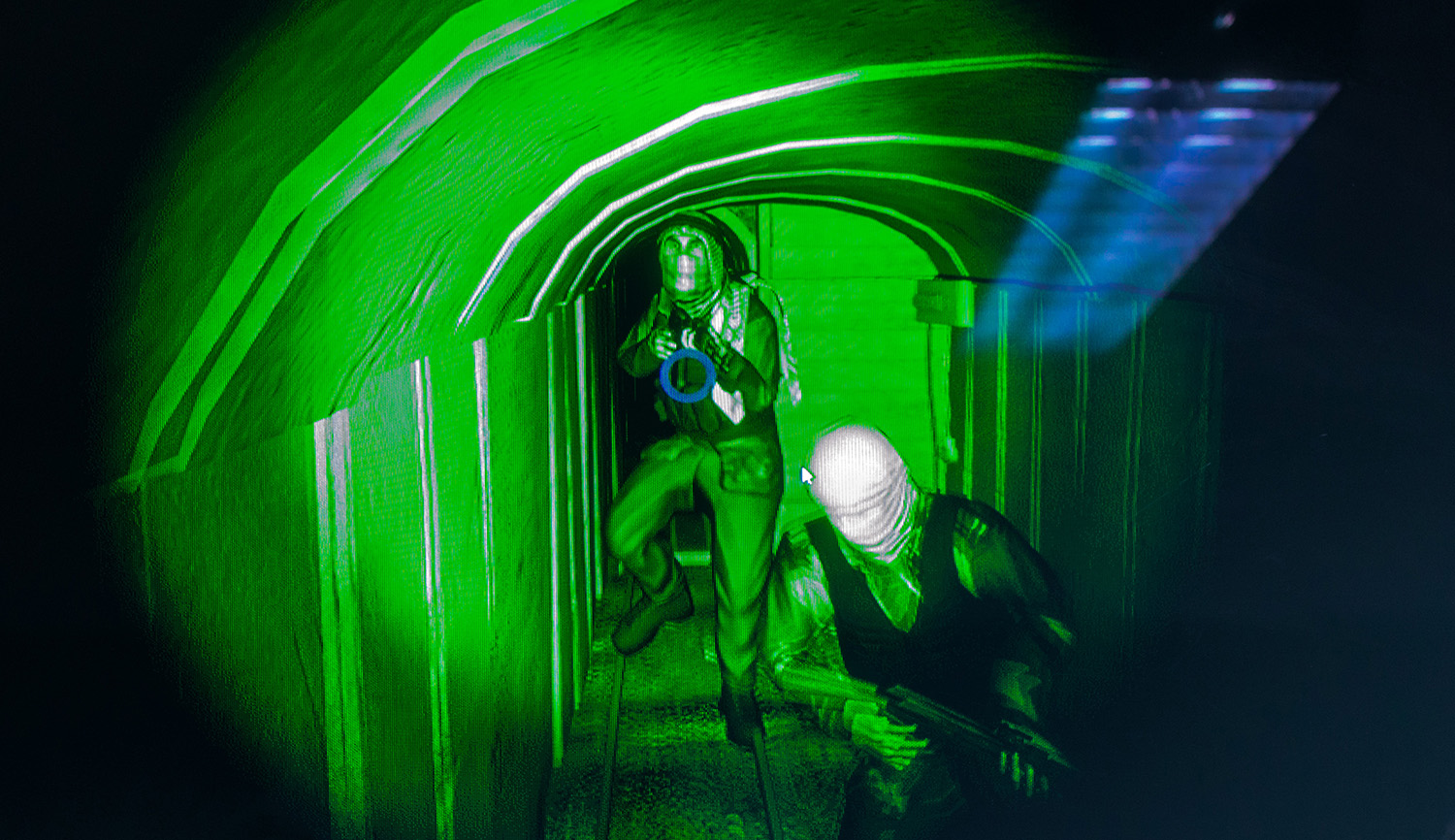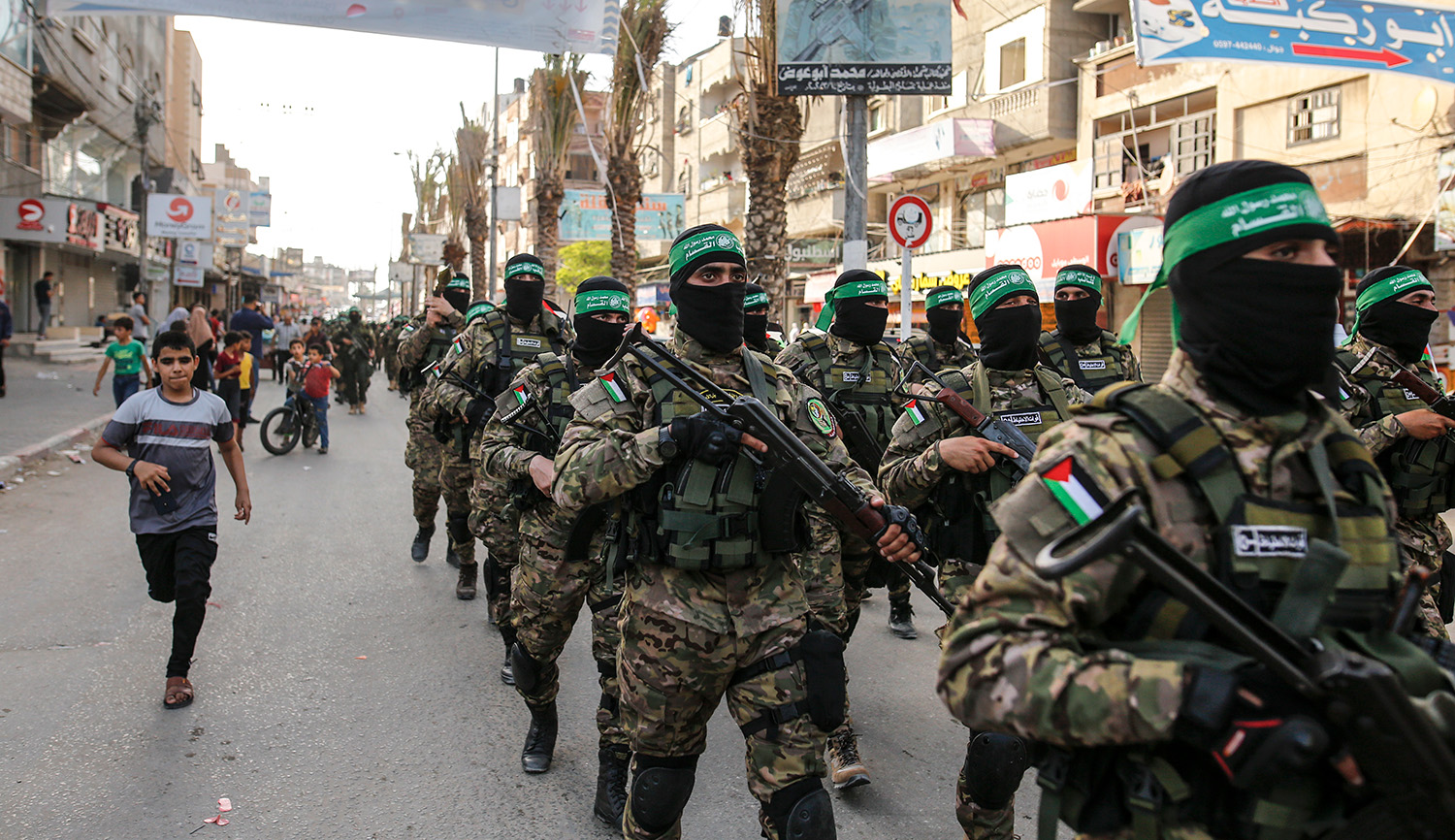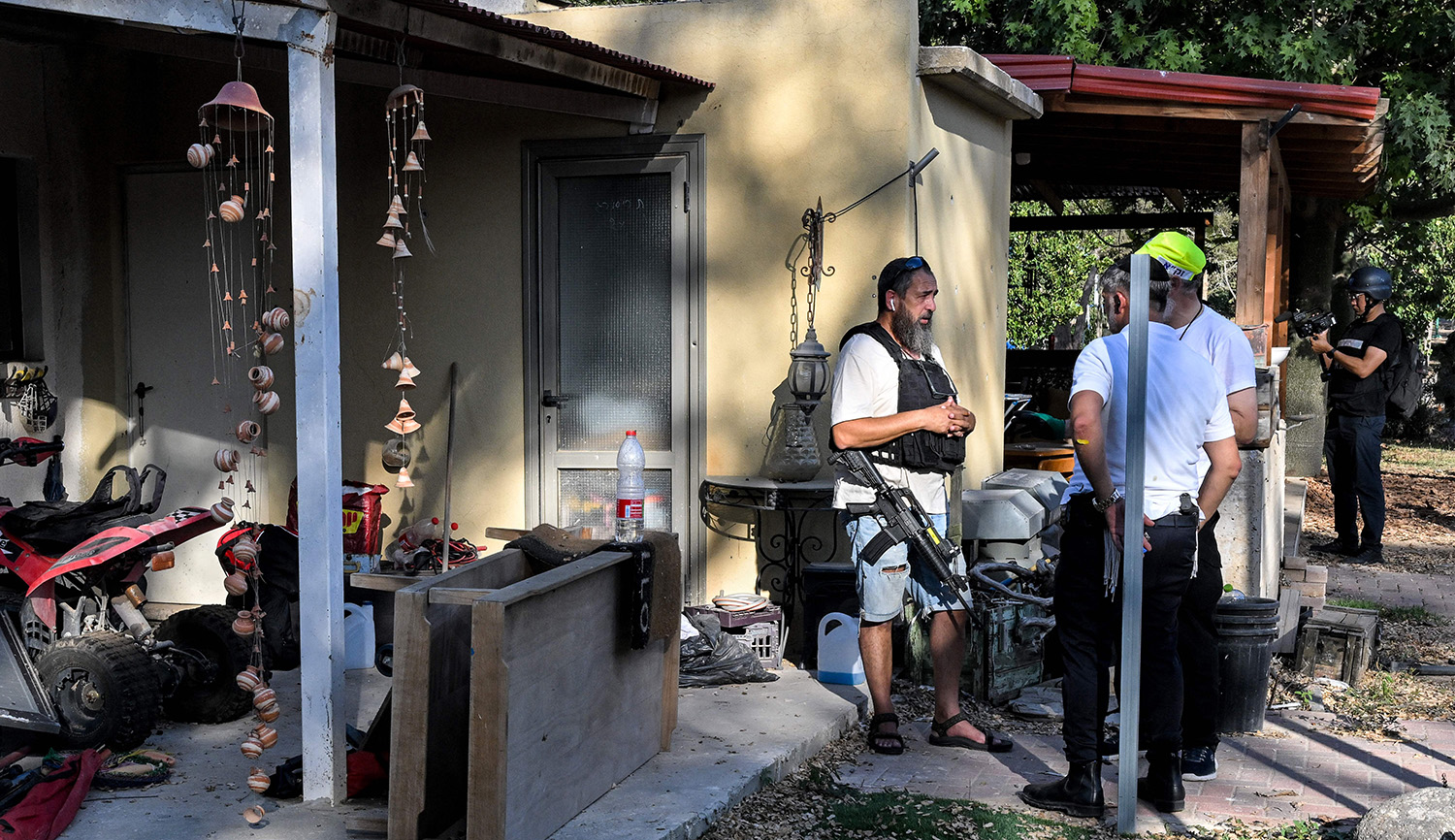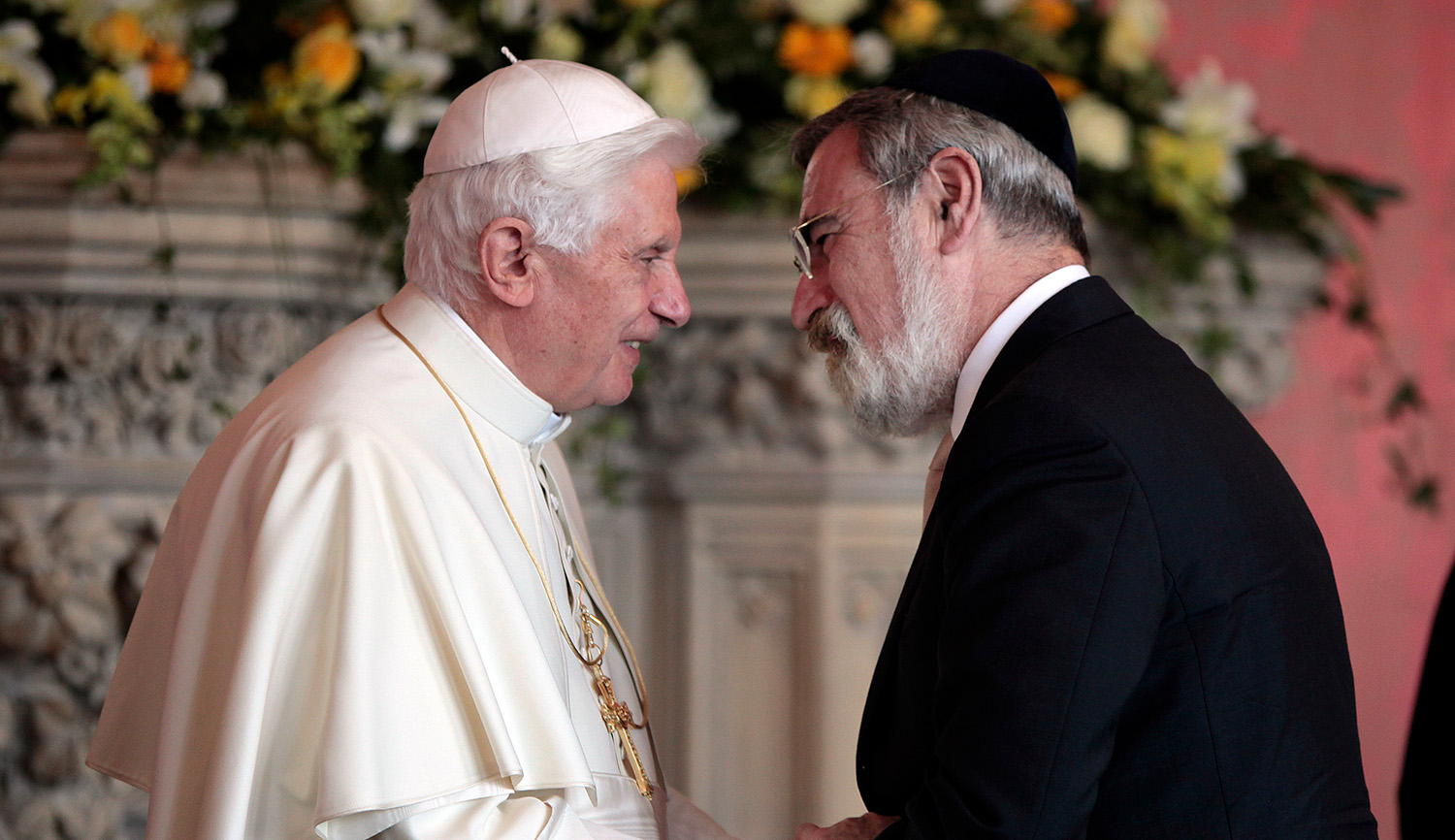On a beautiful Thursday during the middle days of Sukkot, my family took a day trip to the Golan Heights. We visited a newly developed national park called Sussita, which contains the ruins of the ancient Graeco-Roman city Hippos. It was also the site of a daring defeat of Syrian troops by ordinary residents of the nearby Kibbutz Ein Gev in Israel’s War of Independence. The site’s vivid explanatory movie had my older children mesmerized, but afterwards they started to ask questions. Are there still enemy soldiers waiting in those hilltops? Could it happen again? Could ordinary people have to fight like that to save their homes and their families? I answered, of course, by reassuring them: we live in different times today. It’s true there are people who wish to harm us but we live in a strong country with many layers of protection between children like you and those enemies. We admire the heroes of the past, but we’re grateful that we don’t have to live in such dramatic times.
On Simchat Torah two days later that reassuring narrative would collapse, and we entered a new reality, or perhaps returned to a very old one. We live in Ra’anana, a leafy, prosperous city north of Tel Aviv that is known for its large population of olim from all around the world. We woke up that Shabbat and holiday morning to a siren, not a common experience in our region of Israel but not unheard of either. After we emerged from the saferoom, my husband left for the synagogue and I prepared to follow with my children and their little flags and toy Torah scrolls soon afterward. Before we could leave, however, my husband returned. Services were wrapping up quickly because there was a balagan (a tumult or chaotic situation) in the south. Over the course of the eerily quiet day we received more updates here and there, but since—because of the Sabbath—neither we nor most of our neighbors were using our phones or computers, we had only a vague sense of the situation.
When we checked the news right after nightfall, we realized the situation was more appalling than we could have imagined; and even then the extent of the atrocities was only beginning to be understood. It seemed like every friend or neighbor in the military reserves was being called to report for duty, including local rabbis and teachers at our children’s schools. We told our kids that bad guys had tried to attack but that we were stopping them, and that we were going to teach them a lesson they would not forget. Then another alarm sounded, and we prepared our saferoom and the room next door with mattresses for our kids to sleep on overnight.
Since those first few hours of uncertainty, the reports of deaths and the harrowing stories have not stopped. What we hear comes from the same news sources read by people outside of Israel, as well as from neighbors and friends. We understand that we are no longer in the territory of “typical” Arab terror (to which Israelis have sadly grown accustomed) but rather the realm of pogroms and massacres of the Jewish past. There has been a noticeable change in public behavior. We are making an extra effort to be kind in every human interaction—whether by showing a little extra politeness while checking out at a store, or letting someone pass us when we’re driving (unusual in Israel, as anyone familiar with the country knows). We act as if everyone we encounter might be grieving a deep personal loss.
And often they are. Our synagogue rabbi (who is now serving twelve-hour shifts to identify dead bodies in the south) pointed out that there are kinnot (elegies) recited on Tisha B’Av, the saddest day on the Jewish calendar, that commemorate events that were less serious than this. The funerals have not stopped, nor have the shiva visits. One senses that each of these fallen martyrs deserves more attention and more memorializing than he or she is getting, but the atmosphere is still hectic, with rockets still falling in many parts of the country, a massive call-up of reservists, and perhaps also the tragic fact that there is simply too much death for a society to process right now.
And yet, we try to stay hopeful and positive. Our kids, for one thing, are home. School has been canceled and in a way that is reminiscent of the coronavirus lockdowns: we are forced to keep it together enough to organize Zoom school, semi-enriching activities (or not), basic household tasks, and also emotional support for kids who are old enough to be cognizant of what is happening. We’re also a nation of helpers, and astounding efforts have been set up here in Ra’anana and all over Israel to offer whatever civilian support we can.
Among the myriad efforts are groups offering babysitting to families with fathers who have been called up to serve, caring for and housing the many displaced families from the south, and procuring missing equipment and even basic toiletries for the troops, who have been mobilized in almost unprecedented numbers. Some avid carnivores in our community have been traveling to army bases to make BBQs for the soldiers, and our children spend some of their wide-open afternoons baking cookies to send to hospitals and writing thank-you notes to soldiers. At darker moments I think about how small and even laughable our efforts are when considering the dangers our soldiers face and the enormity of what has just occurred. Yet helping is also a manner of coping, and we do what we can, hoping it will make a difference, even if most of the difference is in ourselves.
We also pray. And prayer has taken on a new significance for me since this war began, especially the recitation of Psalms, or T’hillim. Almost immediately after the news came to light on that awful Saturday night, my WhatsApp was flooded with messages about saying specific psalms, about the cosmic power of the T’hillim of children “who have never tasted sin,” or reminders to stay away from morbid videos or morbid thoughts and instead to recite T’hillim. The messages worked. And along the way, I’ve become convinced that the cosmic power of the Psalms is not only some supernatural force, but also the entirely explicable result of reflecting on their content. When we read these ancient poems we understand that good and evil are real, starting with the book’s very first verse: “Happy is the man who has not followed the counsel of the wicked or taken the path of sinners.” We are also given to understand that evil surrounds us in the form of our enemies: “Rescue me, O Lord, from evil men; save me from the lawless (ish ḥamasim), whose minds are full of evil schemes, who plot war every day” (140:2-3). That trust in God can comfort our troubled souls: “Look to the Lord; be strong and courageous; and look to the Lord.” (27:14). That if we call out to Him, God might shake the foundations of the earth to defeat our enemies: “Then the earth rocked and quaked; the foundations of the mountains shook, rocked by His indignation; smoke went up from His nostrils, from His mouth came devouring fire; live coals blazed forth from Him” (18:8-9). Those four verses, out of 2,527, alone would be sufficient.
Less than a month ago we experienced a much smaller national tragedy of a very different sort, and the fact that it happened at all seems almost absurd in light of the subsequent devastation. A group of anti-government protestors fired up by gender segregation and general anti-religious grievances broke up Yom Kippur prayer services throughout Tel Aviv. As one reservist who returned from the U.S. to join the fight put it, “we demonized each other, but now we are confronted with the real demons.” We tragically forgot that, in addition to its role defending Israel, the IDF is the tip of the spear in humanity’s war against the morally lawless, the Psalmist’s ish ḥamasim—a manifestation of pure evil that transgresses all moral boundaries.
Now, as troops are amassed on the southern and northern fronts, among the the most widely requested goods are army-green tsitsit (ritual fringed garments) for men to wear under their uniforms, yarmulkes too, and unsurprisingly, pocket-sized books of T’hillim. The statement “there are no atheists in a foxhole” does not capture the fullness of what is going on here. Instead what we see is the way in which this unspeakable onslaught by our enemies has connected us to each other, to our country, and many of us to our faith. We all desperately wish that this lesson could have been learned in some other, less horrific way. I still hope it’s something that we can hold onto even when, God willing, our enemies are defeated and we enter more peaceful days.
More about: Gaza War 2023, Hamas, Israel & Zionism
